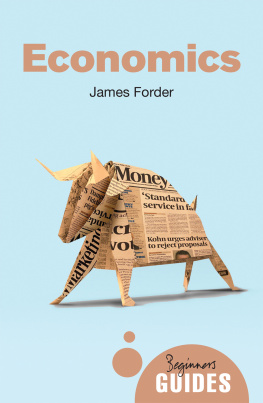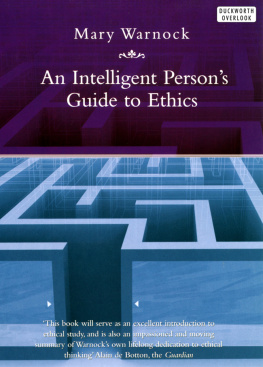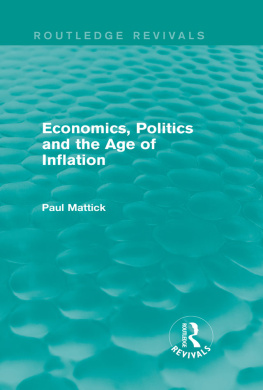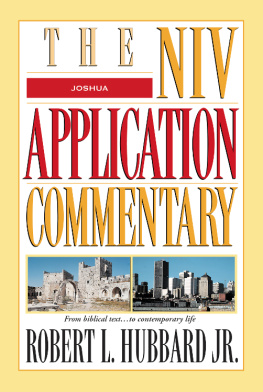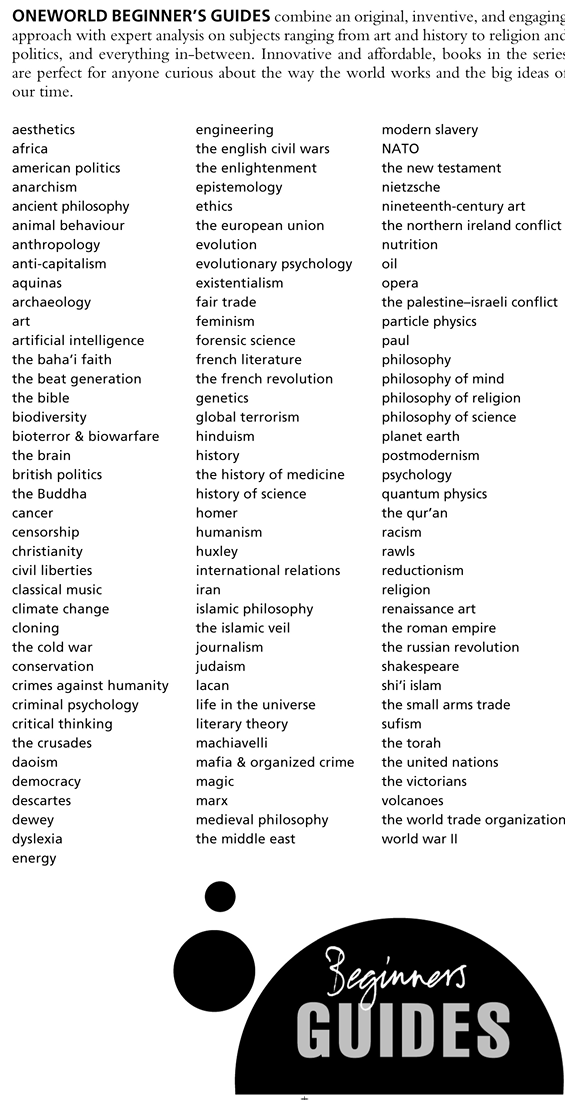Economics
A Beginners Guide
Economics
A Beginners Guide
James Forder

A Oneworld Paperback Original
Published by Oneworld Publications 2016
This ebook edition published 2016
Copyright James Forder 2016
The right of James Forder to be identified as the Author
of this work has been asserted by him in accordance with
the Copyright, Designs and Patents Act 1988
All rights reserved
Copyright under Berne Convention
A CIP record for this title is available
from the British Library
ISBN: 978-1-78074-639-5
eISBN: 978-1-78074-640-1
Typeset by Jayvee, Trivandrum, India
Oneworld Publications
10 Bloomsbury Street
London, WC1B 3SR
England
Contents
There are lots of beginners books on economics. Most of them are student textbooks. There are one or two general reader versions of them really, student textbooks with the mathematics taken out. These come in various shapes and sizes, but they are all very much introductions to the study of economics; they are the place to begin the process of becoming an economist .
That often seems to result in quite a bit of apologizing for the limitations of what is being presented. It is as if the student is told, Never mind that this argument is wholly unrealistic, one day youll see how it can be developed to be more realistic. Or a few lines, or even a coloured box, on the latest research gives reassurance both that everything is OK with economics, and once the first book has been read, it will be great fun to learn more. Well, the young want to be enthused, and anyway, heres an obvious piece of economics: few lecturers will recommend a book that puts their students off their subject. So, if you want to make any money as a textbook author, you had better not do that.
That aspect of advocating economics is even more in evidence in what is sometimes called recreational economics. These are presentations of economics which, with cleverly crafted and often ingenious arguments, show, or purport to show, that snippets of economic reasoning will answer all kinds of puzzles about the world, including many that do not initially look like problems of economics at all. Whether it is the murder rate in Alabama, or the possibility that shy people being more promiscuous could lead to the elimination of AIDS, the subject is presented as if, whatever the question might be, the answer is sure to be found in economics. Economics shows us the logic of life or even the hidden side of everything!
It would be handy if it did. I suppose the idea that it might was more attractive before 2007 than it has been since. But all that confidence that we had reached an age of tranquility and the end of boom and bust turned out to be rather badly misplaced. There are now any number of economists explanations of the failure of economists to see what was going on, much less control it. The argument about what went wrong will go on and on, but it is too late to change the fact that everyone has learned how unwise it is to believe everything economists say. It is just not true that economists have all the answers, and there is no reason to expect that to change.
There are other views of economics, of course. One seems to regard the whole thing as the progeny of some kind of capitalist conspiracy. In these presentations it is as if economics is in its nature about the advocacy of the free market, inequality, the domination of government by big business, and possibly pollution or some such list. Another view still not a friendly one from the point of view of those of us who have spent decades as economists sees it all as rather trivial, just a matter of common sense: its all about supply and demand, they say, and retire, content with a good days work. If that is so, the best idea might be to forget the economics and stick with the common sense.
For others, the essence of economics is absurd abstraction. I can see more basis for that. Economists do sometimes write down ideas far removed from reality, solve some mathematics and declare the results to be true of the world. Sometimes that is just a brief interlude of farce, but sometimes it is dangerous.
To suppose all economics is like that is either a mistake, or perhaps a prejudice. But we do need some way to tell the absurd from the useful, and it is not always obvious how we are supposed to do that. Simply to say that now and then an economist makes a bad assumption takes us nowhere, even though it must be true.
None of these views the favourable or the unfavourable offers a sound way of appreciating what economics is all about, what it can do, and what it cannot or what it should not be asked to do. My view of it is that there are indeed tremendous insights available. But it is better to face squarely the point that they are usually insights, not discoveries. They are ways of looking at things which reveal something important. But they are not in themselves the solution to anything very much. Most of those insights are about the economy, economic behaviour, and economic problems. But lots of the best economics is not so much abstract as metaphorical. And those metaphors do sometimes provide insight beyond economics itself. Appreciation of the power of these tools is the key to seeing what economists are on about or what they are on about when they are worth listening to and what it is that can make economics an exciting subject.
Recognizing the metaphorical character of much economics is the first stage. The next, something which is often not taken seriously at all, is that of interpreting economic theory or interpreting the metaphor, if you like. Only having done that are we in any position to assess it. And it is the assessing, in the light of the various possible interpretations, which is the key to appreciating it. And it is not, to be clear, either a matter of saying that this or that assumption is false; or of declaring that of course, people might not be rational or there might be non-economic factors (whatever they are) to consider. Of course, there are false assumptions and other factors. What we need is a sense of the limits of the metaphor in the argument; an appreciation of which aspects of a problem are being effectively captured by it, which are not, and which ones matter.
The good news about that is that anyone can have a go. In particular, about ninety-nine percent of the time, the only mathematics that is required is the ability to add up, subtract, multiply, and to compare two fractions to see which one is bigger (and, I suppose, to understand expressions like ninety-nine percent). For the appreciation of the vast bulk of worthwhile or potentially worthwhile economic theory, what is required is a certain amount of logical thinking, an acquaintance with the realities of the ways of the world, a willingness to say rubbish when that is appropriate, and, on the other hand, a willingness to see the insight in a metaphor.
And beyond that, there is a another stage, the least noticed of all. Economic analysis raises some big issues, and big challenges in social thought. Some of them are about policy matters about what should be done. But some of them are much broader than that they are more like matters of social philosophy; of how we conceive our society, as an economic society, and in some degree even more broadly than that. Most economists seem to have lost sight of the point that there might even be such issues, let alone that economics might offer some responses to them. Indeed, all too many economists are much more interested in their mathematics than any vision of economic society, and even for those who are not, the pre-eminence of mathematical presentations and the expectations they create blot out other things. But many of those other things should be part of economists repertoire, because economic theory, if it is thought about in the way it should be, does address them. And again, the good news is that anyone can have a go.
Next page
